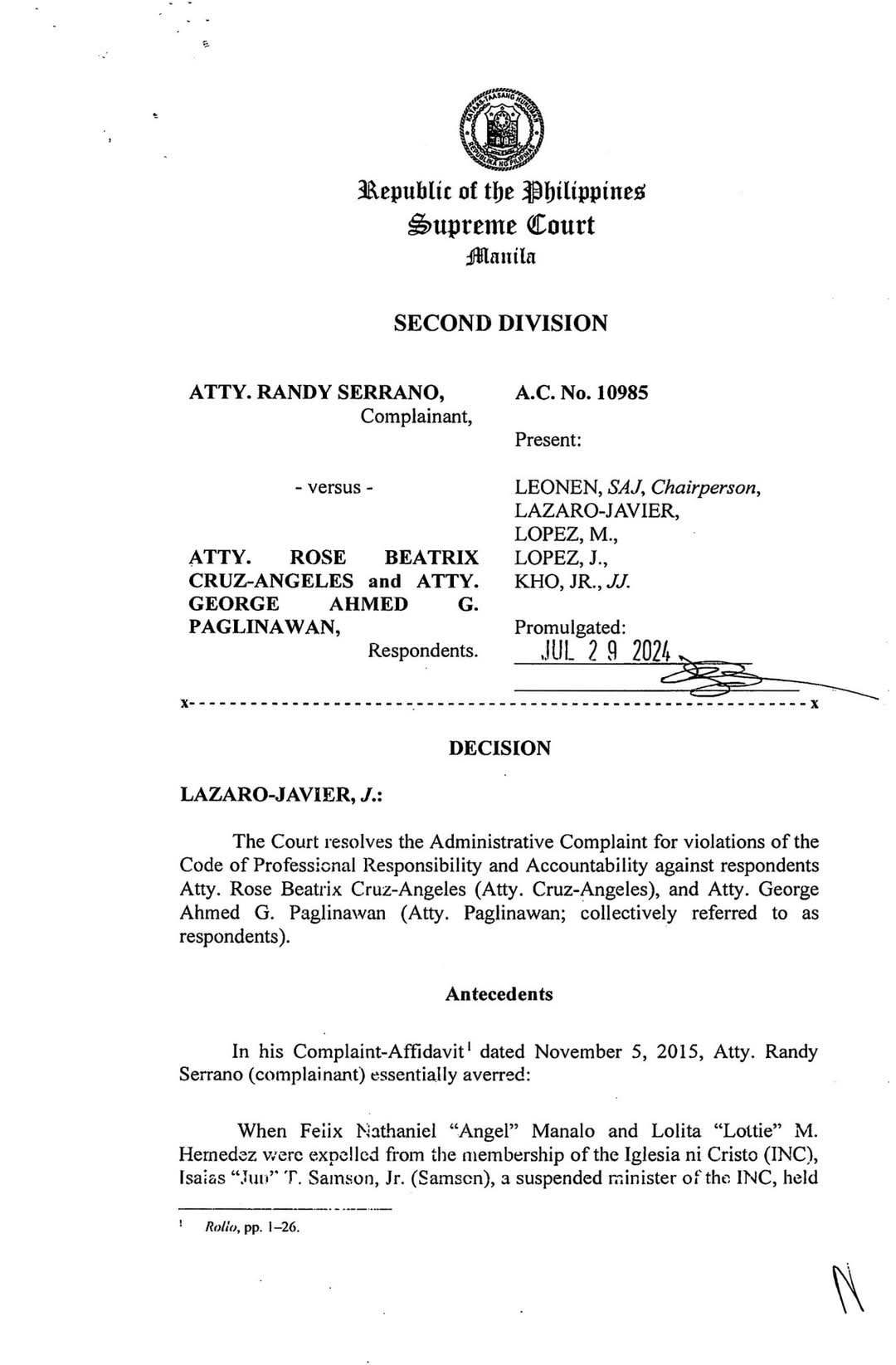MANILA — The Philippine Supreme Court on Thursday dismissed a disbarment complaint against two lawyers who were accused of posting about pending criminal cases involving their client, an expelled Iglesia Ni Cristo (INC) minister, citing a lack of intent to influence the judges handling the cases.
In a 12-page ruling penned by Associate Justice Amy Lazaro-Javier, the SC Second Division cleared Atty. Rose Beatrix Cruz-Angeles and Atty. George Ahmed Paglinawan of violating the Code of Professional Responsibility and Accountability. The lawyers were representing Isaias Samson Jr., a suspended INC minister, in a libel suit filed by the church.
The case arose from a series of social media posts made by the attorneys, who criticized then-President Benigno Aquino III, former Department of the Interior and Local Government Secretary Mar Roxas, and ex-Justice Secretary Leila De Lima for not acting on complaints filed against INC church leaders. The posts also mentioned the criminal case Samson had filed against the church leaders.
Atty. Randy Serrano filed an administrative complaint against Cruz-Angeles and Paglinawan, alleging violations of the Code of Professional Responsibility. The Integrated Bar of the Philippines-Commission on Bar Discipline (IBP-CBD) had recommended suspending Cruz-Angeles and clearing Paglinawan of any sanctions. The IBP Board of Governors reversed this recommendation and dismissed the complaint but imposed a fine of Php 15,000 on each lawyer for failure to obey directives from the investigating commissioner.
In affirming the board’s resolution, the Supreme Court noted that the content of the Facebook posts falls within the constitutional protection of freedom of expression. The court emphasized that public utterances or publications concerning judicial proceedings should not be denied such protection merely because the cases are still pending in courts.
“The posts, as in this case, do not appear to be prejudicial publications in relation to the pending cases, as there is no allegation that they caused undue influence on any of the judges who were made to decide the cases,” the court said in its ruling.
The court also upheld the right to criticize government officials, stating that such criticism is protected unless it is proven to be false, malicious, or unrelated to the officials’ performance of their duties or irrelevant to matters of public interest involving public figures.
“Respondents must be exonerated. It is clear from the foregoing that the subject statements are protected by freedom of speech. The subject statements were uttered in respondents’ defense of their own client either in a proper judicial proceeding, and were thus absolutely privileged, or in public and in valid criticism of government officials,” the SC added.
This decision underscores the court’s stance on the protection of freedom of expression and the right to criticize public officials without fear of retribution, as long as such expressions do not amount to undue influence or are proven to be false and malicious.










